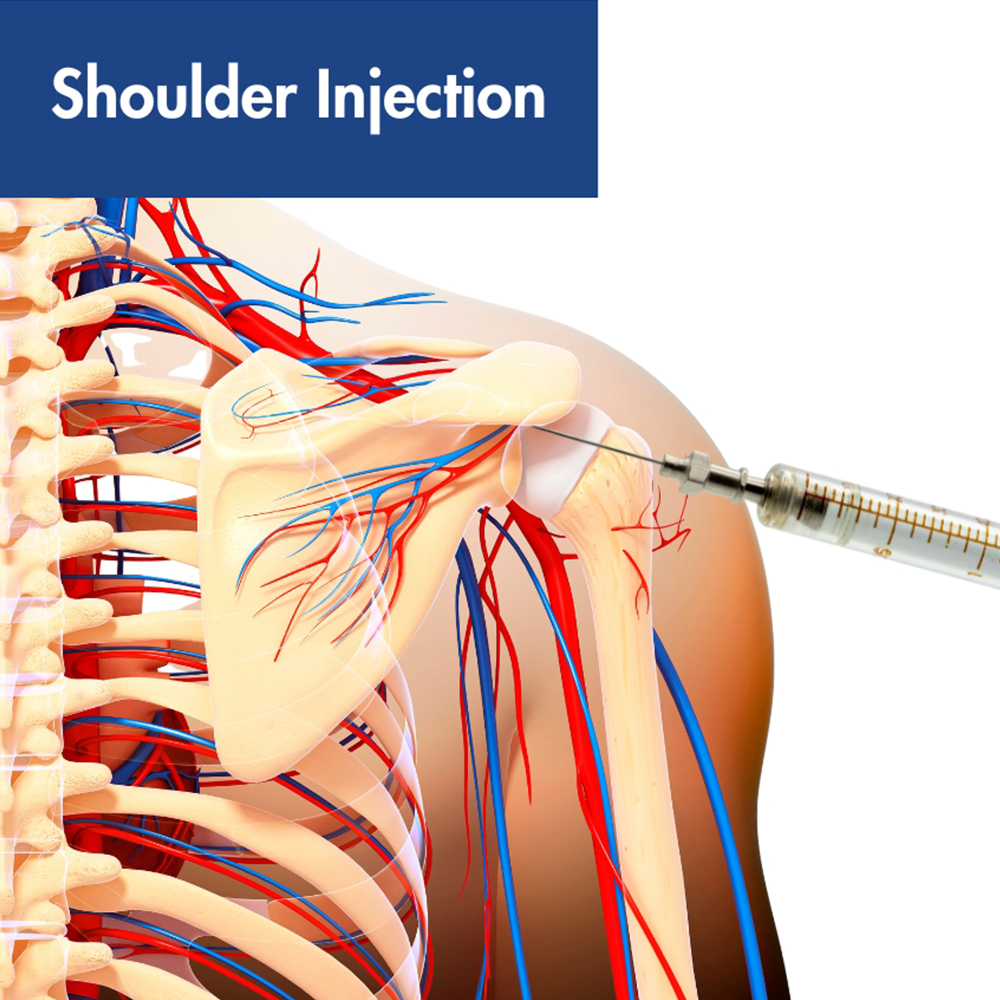We’re pleased to announce that Pain Physicians of Wisconsin is now Pro Spine Pain.
We’re pleased to announce that Pain Physicians of Wisconsin is now Pro Spine Pain.
 A shoulder injection is a swift 15-30 minute minimally invasive procedure. It involves an injection given to your shoulder joint or surrounding tissues. A shoulder injection is primarily used to treat or diagnose shoulder-related conditions. Often, it consists of a combination of a corticosteroid and a local anesthetic which helps reduce pain and swelling together.
A shoulder injection is a swift 15-30 minute minimally invasive procedure. It involves an injection given to your shoulder joint or surrounding tissues. A shoulder injection is primarily used to treat or diagnose shoulder-related conditions. Often, it consists of a combination of a corticosteroid and a local anesthetic which helps reduce pain and swelling together.
During this procedure nerve signals are temporarily blocked to reduce pain. This injection is commonly given as a temporary treatment or integrated with a range of other nonsurgical treatments, such as physical therapy and pain relief medications. A shoulder joint injection can help alleviate symptoms linked to osteoarthritis, frozen shoulder, rheumatoid arthritis, and degenerative wear and tear.
Typically, a shoulder injection can relieve pain for several months; however, each patient’s response to the injection differs. You may experience shorter or long-term relief depending on your pain, condition, and lifestyle.
To know more about this, book an appointment at one of Wisconsin’s five centrally located clinics. All with state-of-the-art facilities, a caring team of board-licensed pain management specialists, anesthesiologists, and advanced practice providers, quickly reclaim control over your pain.
After a comprehensive consultation reviewing your medical history, symptoms, and diagnosis, your physician may refer you for a shoulder joint injection.
Shoulder injections can help alleviate pain caused by the following conditions:
In addition to relieving conditions, your physician might give you a shoulder joint injection for diagnostic purposes. Sometimes, this can help them identify the source of pain.
If you are still experiencing pain a week after your injection, it may be a sign that the pain is coming from somewhere else, and you need a further diagnosis.
Depending on your pain, symptoms, and shoulder condition, there are different shoulder injections.
You could either have one of the following:
If your physician feels you need a shoulder injection, they will advise you to stop strenuous activities and driving on the day of your procedure.
Then, they will generally do the following:
Following the procedure, you’ll likely be kept in for 30-60 minutes to ensure there are no adverse reactions. You should be able to return to normal activities and work a day following the procedure.
Our highly adept team will also schedule you for a follow-up to ensure continuity of care and that your pain is diminished. You can usually expect this injection to take effect 24-72 hours after the procedure.
At Pro Spine & Pain, we have extensive clinical experience giving shoulder injections. Using advanced techniques and abiding by strict clinic protocols, we ensure side effects are kept to a minimum. Sometimes, there is a small chance, but it's usually rare for infection or the cortisone to go to the other parts of your body.
Shoulder injections are relatively painless due to the local anesthetic we provide during the procedure. If you feel any pain following, it's likely to be mild and wear off in just a few hours.
The most common injections use hyaluronic acid and corticosteroids to relieve inflammation and pain.

Thomas Stauss, MD, completed both his undergraduate and medical studies at the esteemed University of Wisconsin in Madison. Dr. Stauss values having access to a wide array of cutting-edge treatment options, ensuring effective relief for his patients' discomfort and a significant enhancement in their quality of life. More specifically, he specializes in utilizing implanted devices to manage chronic pain. Dr. Stauss’s primary objective is to uphold the dignity of each patient while delivering ethical and professional services.
More about Dr. Stauss